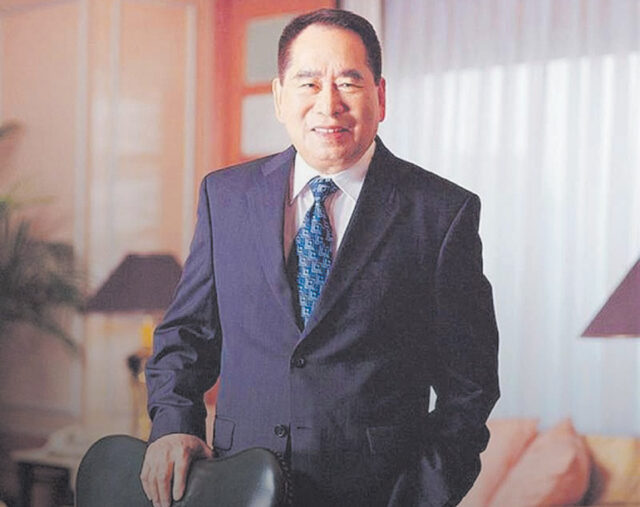The enduring legacy of Henry Sy, Sr.

Henry Sy, Sr. is an undisputed icon in Philippine business history, even being dubbed as the “Father of Philippine Retail,” with the SM Group of Companies as his crowning achievement.
More than that, however, he is fondly remembered by the moniker “Tatang” by his employees, managers and the entrepreneurs who have worked with him and who over the years have shared countless stories of his warmth, humility and compassion for his fellow Filipinos.
Before his death on Jan. 19, 2019 at the age of 94, Mr. Sy was the wealthiest person in the Philippines, according to Forbes, with a net worth of US$19 billion (about P1 trillion). In his wake, he left behind a legacy that goes beyond his vast wealth.
For instance, while working with her mother-in-law, National Book Store Founder Socorro Ramos, Precy Ramos recounted how Tatang personally supervised the construction of SM North Edsa, the first SM Supermall, which opened in 1985.
Over the course of many years, Tatang went above and beyond to make sure that SM malls had adequate space for National Book Stores.
This successful alliance was a result of the deep friendship and business relationship maintained between Tatang and Nanay Coring, who had watched Mr. Sy’s business grow from its earliest days in the Avenida business district.
“During Tatang’s 80th birthday celebration, for example, he sent somebody over to get Nanay. She sat beside him [during the party], they were beside each other the whole time,” Ms. Ramos said. “They really had a lot of respect for each other.”
Bernie Liu, chairman and CEO of the Penshoppe Group — the Filipino-owned fashion conglomerate behind the Penshoppe, OXGN, Regatta, Forme, Memo, and Bocu brands — was also impressed by Tatang’s meticulous attention to detail.
Tatang is still clear in Mr. Liu’s mind as he described how Mr. Sy would go throughout the department store with a team behind him, making notes and jotting down orders.
“He was very particular about the display. I remember when we opened our display module in SM Makati, there was a portion that he thought was too dark. He said that should be changed,” Mr. Liu said, adding that Tatang was “really hands-on and very down to earth.”
After all, it was easy to assume that someone with Tatang’s level of accomplishment and status would use his privileged position to control his expanding business from an ivory tower. But that was not how Tatang did things. Instead, he liked to scout for new expansion chances while walking the floor and keeping his ears to the ground.
But perhaps most striking of such stories is that of Lydia de Roca, founder of the 58-year-old Lydia’s Lechon.
Ms. De Roca said that in 1989, her first business in Baclaran had a regular customer, a Chinese man, who would come in on Sundays and eat his own 1/4 kilo of lechon with rice in peace and quiet.
He was dressed simply in a shirt, shorts and slippers, and he carried an empty bayong. He would fill his bayong with seafood from the neighboring stalls after finishing his plate of Lydia’s lechon.
It was only after a while before Ms. De Roca found out who the man was. The following Sunday, she approached him and introduced herself, sharing how she owned the branch but that she started with a small stall outside the Our Lady of Sorrows Church in Pasay City.
To her surprise, Tatang asked her if she wanted to also have a stall in the SM Food Court. Ms. De Roca took him up on his offer and opened in 1990 the first Lydia’s in the food court of SM Sta. Mesa, then known as SM Centerpoint.
“Since then, I’ve always kept him in my prayers. I asked the Lord to always keep watch over him and his family,” Ms. De Roca said.
Mr. Sy was born in Fujian, China, but he and his family emigrated to the Philippines when he was 12 years old.
Showing an inherent drive for diligence and entrepreneurship, he helped his father sell rice, sardines and other merchandise at the shop their family had set up. When the shop was destroyed in World War II, Mr. Sy’s family decided to return to China, leaving him behind as he pursued a business degree at Far Eastern University. He launched ShoeMart in 1958.
ShoeMart, now known as SM, began as a modest shoe store in Manila and has since expanded, with more than 60 department stores, 50 supermarkets, and 200 grocery stores spread throughout 49 malls in the Philippines and China.
With such humble beginnings, Mr. Sy’s SM Investments Corp. (SMIC) is today the largest conglomerate in the Philippines, with holdings in retail, real estate, and banking. SM Prime Holdings, Inc., China Banking Corp. and SM Retail Group are just a few of SMIC’s other notable holdings.
BDO, the country’s second-largest bank, and SMDC, a real estate conglomerate, are both owned by the SM Group.
Together with his wife Felicidad Tan-Sy, Mr. Sy also founded the SM Foundation, Inc., a nonprofit organization that works to promote social inclusion by providing resources and support to underprivileged neighborhoods in areas where SM operates. — Bjorn Biel M. Beltran



